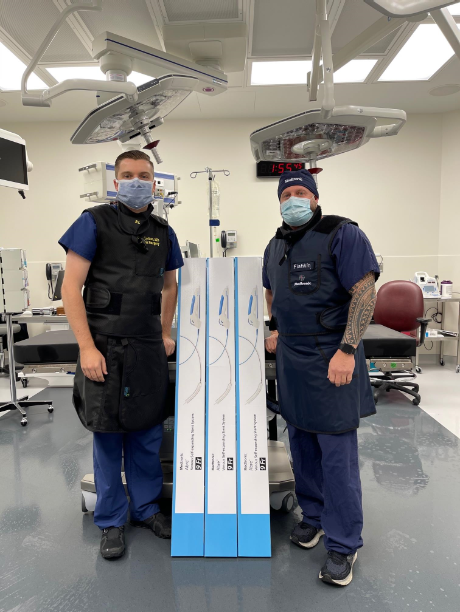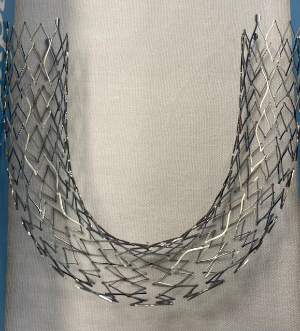
ROCHESTER – A vascular surgeon at Rochester General Hospital has announced the hospital is one of 10 locations chosen nationwide to introduce a new option of treatment for patients who suffer from iliofemoral venous outflow obstruction, commonly known as venous obstruction.
In a Zoom conference Thursday, Dr. Ryan Lydon said he was the first in the Northeast to use the Medtronic Abre venous self-expanding stent system.
“As of the end of last week, I was the number-one implanter in the United States,” Dr. Lydon said. “One of the most exciting aspects of this is that after more than 10 years of research and development, the largest medical device company in the nation chose Rochester General Hospital to be one of their launch sites.”

Previously, he said doctors were limited in the number of patients they’ve been able to help, due to the lack of a product which offers the flexibility of this stent. This new stent will allow doctors to treat younger patients than they could in the past.
He explained the venous system drains blood from all parts of the body and returns it to the heart. When an obstruction occurs a patient can become increasingly disabled. Dr. Lydon explained all the veins in the leg drain into the area between the groin and the belly button.
A patient, often a younger person, can develop an obstruction in a vein or a compression can occur on the outside for various reasons. He said the self-expanding stent can help these patients return to a normal life.
“We have been waiting for a product that will stand up to the stress of a younger, more active, individual,” the doctor said.
Medtronic estimates 24 million people are affected by deep venous obstruction, with less than 1 percent of that population receiving treatment.
“Being chosen as one of the first 10 locations in the country with this newly approved FDA product provides us with a new option of treatment for patients with this disease,” Dr. Lydon said.
He said in the past a patient may have one leg three to four times larger than the other, yet doctors have been unable to come up with an answer to the cause.
“Now, in 2020, we have the ability to increase or dramatically improve their quality of life,” the doctor said. “Up until now, doctors didn’t feel comfortable putting a stent in a 30-year old.”
He said the data and clinical trials on the self-expanding stent to this point have been very encouraging. The biggest concern was for stent migration or stent fracture, and with this new product they have seen 0-percent migration and 0-percent fracture.
Dr. Lydon said he was not so excited for himself, but for Rochester General Hospital.
“Historically new products have only been released to university institutions and the fact they chose Rochester General Hospital shows the quality of care we are delivering,” Dr. Lydon said. “People are coming from farther and farther away to seek treatment at our facility. This shows the level of care being offered at Rochester Regional Health.”
Top photo: Dr. Ryan Lydon, left, and Medtronic representative Jason Fishkin.
